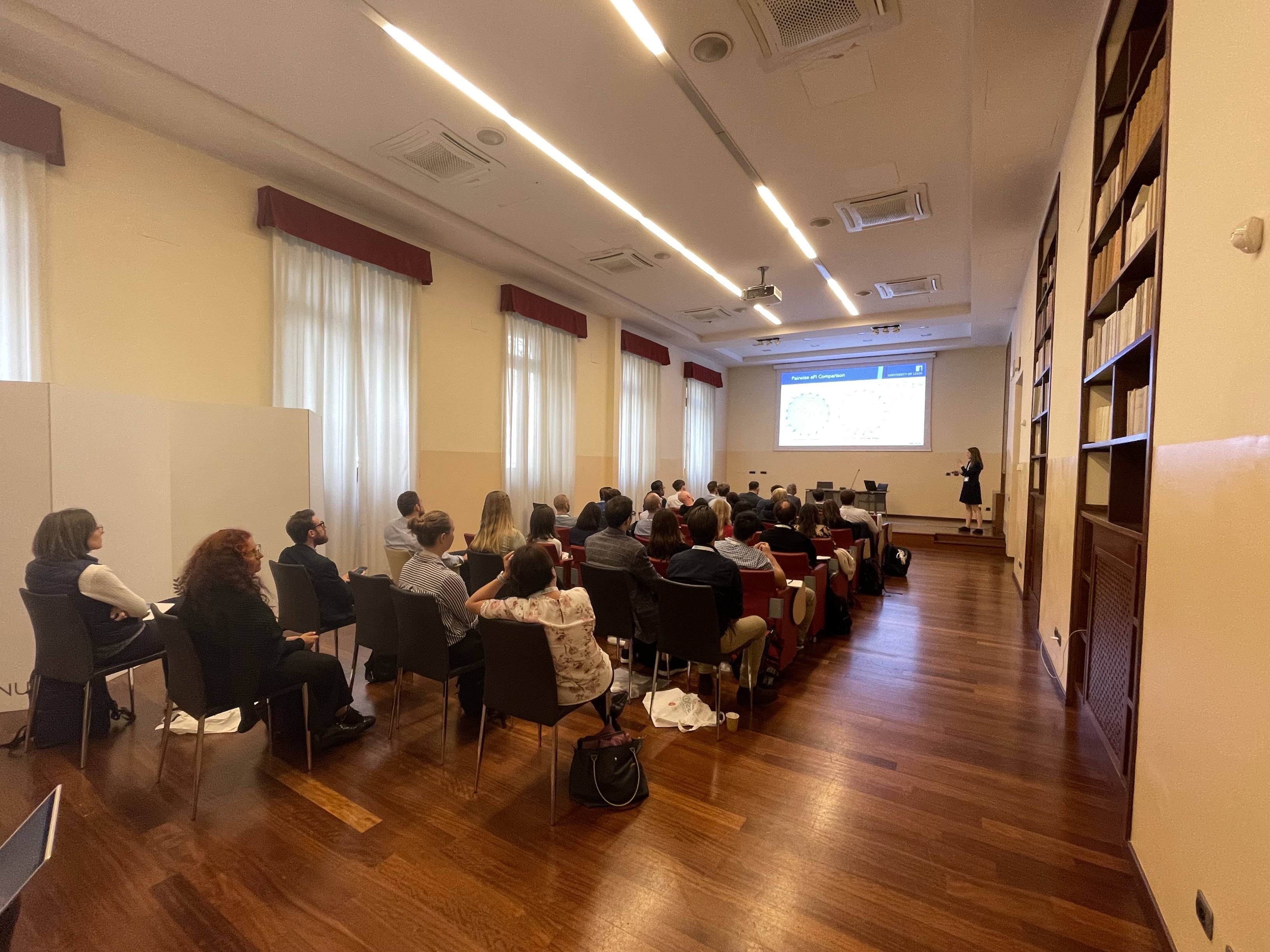International Conference for Process Mining (ICPM) 2023 (Rome, Italy)
The International Conference for Process Mining (ICPM) 2023 commenced on October 23rd. Among the attendees from the University of Leeds were three students—Zoe Hancox, Alexander Coles, and Abdulaziz Aljebreen—accompanied by their lecturer, Owen Johnson. The focus of their participation was the Process-oriented Data Science for Healthcare (PODS4H) workshop, where they shared their innovative research and insights.
Zoe presented her work on hypergraphs for frailty and multimorbidity analysis. Her paper delved into the world of hypergraphs, exploring potential trajectories and patterns within frailty and multimorbidity. Zoe demonstrated that hypergraphs enable us to determine the probability of acquiring another electronic frailty index (eFI) condition, understand condition connectivity and ordering, and identify the most influential hyperarcs (groups of conditions). Hypergraphs enable us to retain progression information more successfully compared to standard graphs, facilitating the implementation of more effective healthcare strategies.
Alexander brought attention to the critical issue of ambulance service bottlenecks. Through his poster presentation, he demonstrated how process mining could be employed to identify and address bottlenecks, ensuring swift and efficient emergency responses. The application of process mining in this context showcased its versatility and its potential to enhance emergency services, ultimately saving lives.
Abdulaziz’s contribution to the workshop centred around his process mining model designed to predict Accident & Emergency (A&E) admissions. Abdulaziz’s model aimed to provide healthcare professionals with a tool to anticipate patient readmissions, optimising resource allocation and improving overall emergency care.
The workshop featured a myriad of discussions on the diverse applications of process mining in healthcare. Talks covered topics such as ontologies for event log selection, the advantages and disadvantages of extended code lists, application of process mining in laboratories, and dementia care via appliance monitoring and sensors.
The discussions further expanded to include the role of process mining in understanding the impact of socio-economic status on health outcomes. The workshop highlighted the potential for process mining to create multimorbidity clinical event knowledge graphs. Additionally, process mining can be used to enable healthcare professionals to anticipate and prevent hospital overcrowding and facilitate more effective aftercare planning.
Amidst the technological marvels discussed, the workshop did not overlook the practical aspect of healthcare professionals’ needs. There were discussions on tailoring process mining applications to deliver valuable insights without creating “pop-up fatigue.” The focus was on understanding what healthcare professionals truly require and ensuring that process mining tools align with those needs, fostering a seamless integration of technology into healthcare workflows.
The PODS4H workshop at the International Conference for Process Mining 2023 provided a glimpse into the future of healthcare analytics. As we look ahead, it is evident that the marriage of data science and healthcare will continue to yield innovative solutions, ultimately enhancing patient outcomes and shaping the future of medical practice.
 |
|---|
Blog written by: Zoe Hancox
Conferences